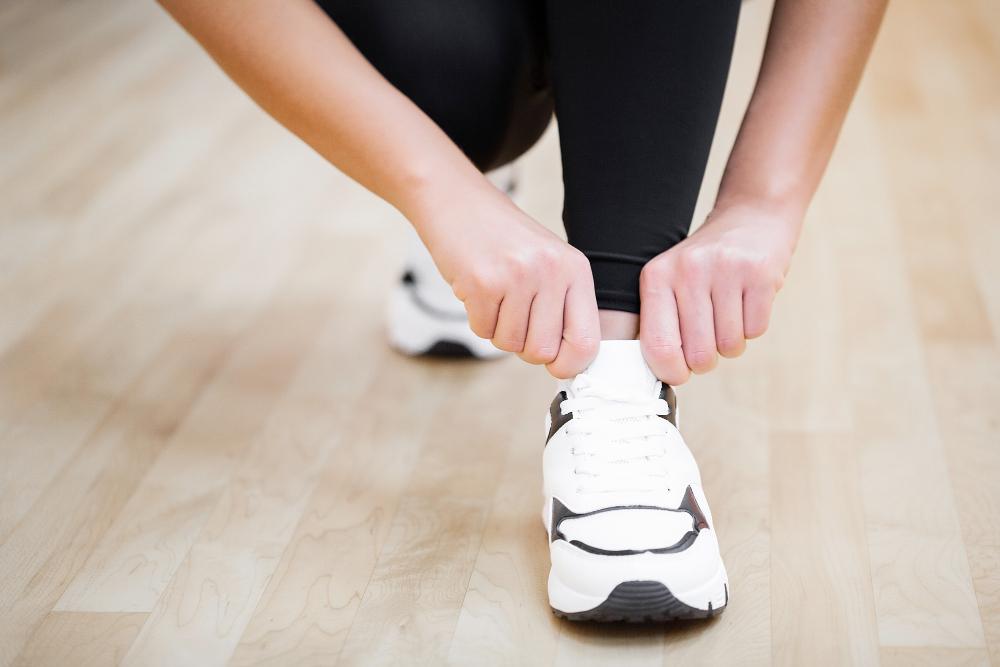Fit Shoes Properly to Avoid Foot Conditions
 Our feet serve as the foundation of our bodies and support us through every step we take. While some foot conditions are influenced by genetics and factors beyond our control, the choice of proper footwear plays a crucial role in preventing certain foot ailments.
Our feet serve as the foundation of our bodies and support us through every step we take. While some foot conditions are influenced by genetics and factors beyond our control, the choice of proper footwear plays a crucial role in preventing certain foot ailments.
In this brief article brough to you by Mountain Spring Podiatry, we look into the significance of proper footwear in avoiding common foot conditions and explore how careful choices can promote foot health and overall well-being.
If you’d rather consult with a licensed podiatrist, then call Mountain Spring Podiatry to schedule a convenient appointment or arrange urgent foot care for as soon as possible. Our team is on standby to take your message or call today.
Common Foot Conditions to Know
Before getting into the role of footwear, let’s understand some common foot conditions that can be influenced by footwear choices:
- Bunions: Bunions are bony bumps that form at the base of the big toe. This is often due to excessive pressure or improper alignment. Ill-fitting or narrow-toed shoes can exacerbate bunions and contribute to their development.
- Plantar Fasciitis: Plantar fasciitis refers to the inflammation of the plantar fascia, the tissue that connects the heel bone to the toes. Poor arch support, inadequate cushioning, or wearing worn-out shoes can contribute to plantar fasciitis.
- Ingrown Toenails: Ingrown toenails happen when the edge of the toenail grows into the surrounding skin. This can lead to pain, redness, and potential infection. Tight or narrow shoes can increase the risk of ingrown toenails by putting pressure on the toes.
- Calluses and Corns: Calluses are thickened areas of skin that develop in response to repeated friction or pressure, and corns are smaller, more localized areas of thickened skin. Improper footwear, such as shoes with tight or narrow toe boxes, can contribute to the formation of calluses and corns.
The Role of Proper Footwear
One of the most crucial aspects of footwear is proper fit. Shoes that are too tight or too loose can lead to a variety of foot problems such as bunions, ingrown toenails, and blisters. A properly fitting shoe should have enough room for toes to move freely without being excessively tight or loose.
Adequate arch support is also essential. This is key for maintaining the natural arch of the foot and preventing conditions like plantar fasciitis and flat feet. Choose shoes with built-in arch support or use orthotic inserts for added support and comfort.
Further, look for shoes with cushioned insoles or midsoles to protect your feet from excessive strain. Shoes with adequate cushioning help absorb shock and reduce pressure on the feet while walking, running, or standing for extended periods.
Finally, the width of the toe box, or the front part of the shoe where the toes are housed, is crucial in preventing bunions, ingrown toenails, and corns. Opt for shoes with a wide enough toe box to accommodate the natural shape of your toes without crowding or compressing them.
Work with Professionals
If you’d like to consult with foot specialists on your shoe selection, then consider Mountain Spring Podiatry. Call us today to schedule an appointment with a licensed foot doctor and get started with an evaluation of your feet. Our team is ready to take your call.
